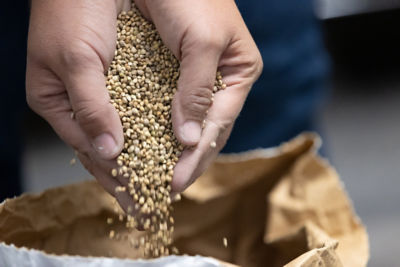Causal Agent
Belonolaimus spp. (Sting Nematode)
Pratylenchus spp. (Root Lesion or Meadow Nematode)
Rotylenchulus spp. (Reniform nematode)
Trichodorus spp. (Stubby Root Nematode)
Paratylenchus spp. (Pin Nematode)
Distribution
Worldwide
Symptoms
Sting Nematode: Infested fields often exhibit small, circular to irregularly shaped loci of stunted plants. Plants within the center of these loci begin to die as the diseased area expands. Symptoms first appear on the older leaves and foliage dies from the leaf margin inward. Young roots become brown, whereas older roots develop longitudinal brown streaks. This nematode has a wide host range and survives indefinitely on crabgrass.
Reniform Nematode: Above-ground symptoms on host plants include stunting, shedding of leaves, malformed fruit and seeds, and an impaired root system. Roots can be discolored and necrotic with areas of decay. Plant death can occur under heavy infestations.
Root Lesion Nematode: Root infections do not usually cause economic damage. However, lesions that develop on roots can often be invaded by soil-borne fungal and/or bacterial pathogens. Asymptomatic plants can serve as hosts, allowing nematodes to reproduce and build up populations.
Stubby Root and Pin Nematodes: Symptoms caused by these two nematodes include: reduced numbers of feeder roots, restricted root growth and plants which are stunted and yellow in appearance. Infected plants are seldom killed.

Conditions for Development
Moderate losses occur in moist sandy soils and at warm temperatures. These nematodes survive on weed hosts.
Control
Proper identification of the nematode species and population level is important for determining effective management strategies. Implement cultural practices which promote moisture and nutrient availability throughout crop cycle. Nematicides and weed-free fallow periods have been shown to lower nematode populations. Use of a non-host can aid in reducing nematode populations.



